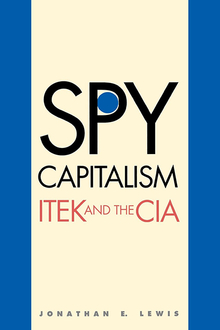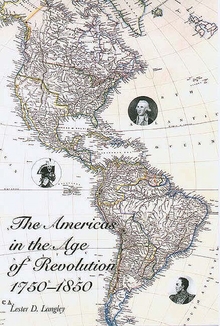Spy Capitalism
WARNING
You are viewing an older version of the Yalebooks website. Please visit out new website with more updated information and a better user experience: https://www.yalebooks.com
ITEK and the CIA
Jonathan E. Lewis
What happens when the world of venture capital collides with the world of espionage? To find the answer, Jonathan E. Lewis takes us inside the executive suite at Itek Corporation during the Cold War years from 1957 to 1965. Itek was manufacturing the world’s most sophisticated satellite reconnaissance cameras, and the information these cameras provided about Soviet missiles and military activity was critical to U.S. security. So was Itek. This intriguing book examines in unprecedented detail the challenges Itek faced not only as a contractor for the most important national security program of the time—the CIA’s Project CORONA spy satellite—but also as a start-up company competing with established industrial giants.
In telling the story of Itek Corporation, Lewis fills important gaps in the history of American intelligence, business history, and management studies. In addition, he addresses a variety of important themes such as the compatibility of secrecy and capitalism, the struggle between profits and patriotism, and the workings of power and connections in America. Lewis explores how Itek executives contended with myriad business problems that were compounded by the need to raise capital without revealing the complete truth about the company’s highly secret business. He also presents for the first time information about Laurance Rockefeller’s venture capital operations and his role in financing Itek, based on the financier’s private Itek papers. The book is both a remarkable case study of a company at the heart of the American intelligence-industrial complex during the Cold War and a thought-provoking examination of the impact of the CIA on the capitalist system it was created to defend.
In telling the story of Itek Corporation, Lewis fills important gaps in the history of American intelligence, business history, and management studies. In addition, he addresses a variety of important themes such as the compatibility of secrecy and capitalism, the struggle between profits and patriotism, and the workings of power and connections in America. Lewis explores how Itek executives contended with myriad business problems that were compounded by the need to raise capital without revealing the complete truth about the company’s highly secret business. He also presents for the first time information about Laurance Rockefeller’s venture capital operations and his role in financing Itek, based on the financier’s private Itek papers. The book is both a remarkable case study of a company at the heart of the American intelligence-industrial complex during the Cold War and a thought-provoking examination of the impact of the CIA on the capitalist system it was created to defend.
Jonathan E. Lewis is a portfolio manager at OFFITBANK and cochairman of the intelligence capabilities action group at Business Executives for National Security (BENS). He recently served as a member of the BENS Independent Panel on the Central Intelligence Agency In-Q-Tel Venture, a study mandated by the United States Congress. He is coauthor of Reflections of a Cold Warrior: From Yalta to the Bay of Pigs, published by Yale University Press.
“Lewis intertwines several Cold War years of U.S. business history, bureaucratic-administrative history, and strategic intelligence history in a combination that has no precedent for revelatory, engaging, and exciting detail.”—H. Bradford Westerfield, Yale University
“By far the most comprehensive and definitive description of the symbiotic relationship between the corporate world and the CIA’s early space-based intelligence collection program. The quality of research is extraordinary.”—William E. Burrows, author of Deep Black and By Any Means Necessary
“This fast-paced story reads like a cross between good spy fiction and a business school case study. Rich in detail, it chronicles the reality of government working with the private sector in the national interest, with all the pitfalls and cultural disconnects thrown in.”—Frederick P. Hitz, Princeton University, and former Inspector General, CIA (1990–1998)
“Once I started reading Spy Capitalism, I could not put it away. It’s a fascinating study, extremely well told, and it makes a real contribution to our knowledge of the Cold War period.”—Arthur S. Hulnick, Boston University
“Jonathan Lewis, co-author of spy legend Richard Bissell’s memoirs, has produced another valuable book on U. S. intelligence. This time he takes us into the shadowland of the CIA’s relations with corporate America. His study of the often uneasy partnership between the ITEK Corporation and the CIA in the construction of early spy satellites is thorough, reliable, and felicitously written.”—Loch Johnson, Regents Professor of Political Science at the University of Georgia
“Jonathan Lewis breaks new ground his stimulating book, Spy Capitalism: ITEK and the CIA. Much has been written about the CIA’s efforts in the 1950s and 1960s to develop sophisticated collection systems. There has been little focus, however, until Lewis’ book, upon the efforts of corporate America to adapt science and technology breakthroughs to the reconnaissance revolution. The work by companies such as ITEK made a major difference in the intelligence war against the Soviet Union. This government/private industry partnership deserves the recognition Lewis gives it. It is truly a remarkable book.”—Dr. Gerald K. Haines, Chief Historian, CIA
“Lewis’s well-crafted study is a worthy addition to the growing Cold War literature and should be considered for most collections.”—Library Journal
“By exposing for the open record the intersection between corporate decision making and closely held intelligence policymaking, Lewis presents a unique and detailed description of a distinctively American phenomenon.”—Rodney Carlisle, Enterprise & Society
“Spy Capitalism gives us a unique account of key developments in the technology of Cold War surveillance.”—David Seed, Journal of American Studies
ISBN: 9780300209754
Publication Date: June 10, 2014
Publication Date: June 10, 2014
336 pages, 6 1/8 x 9 1/4









